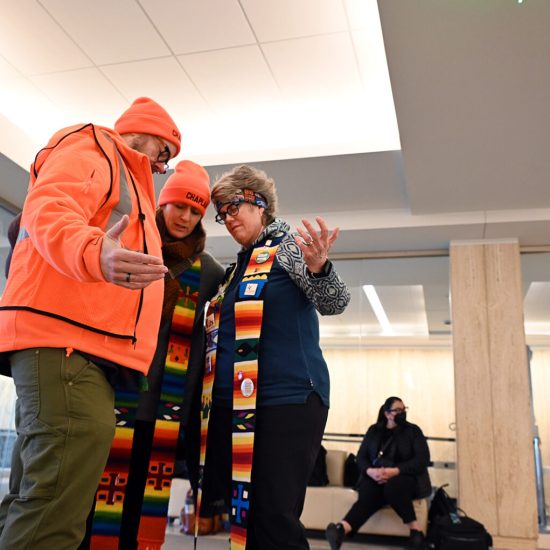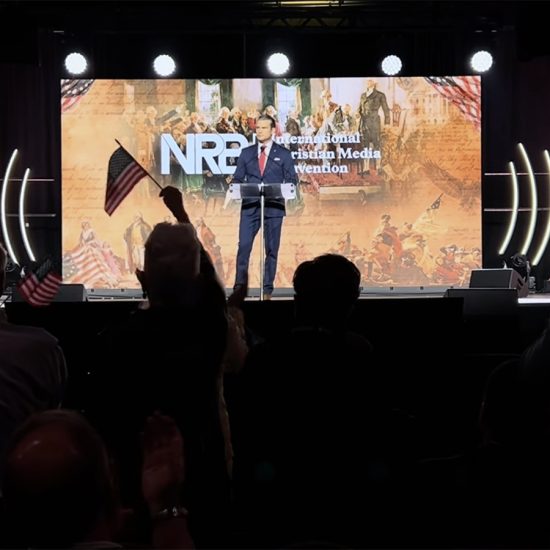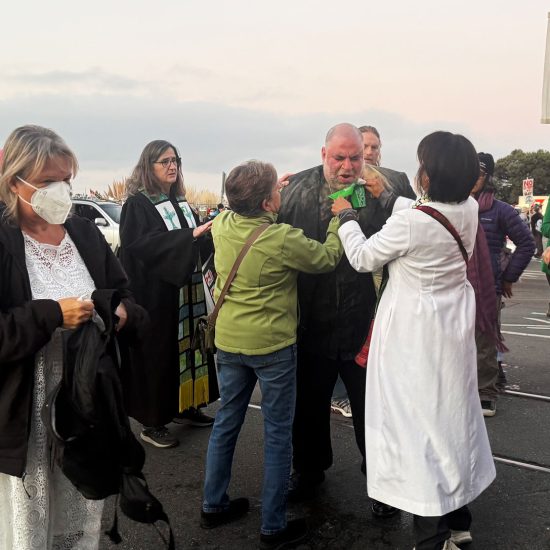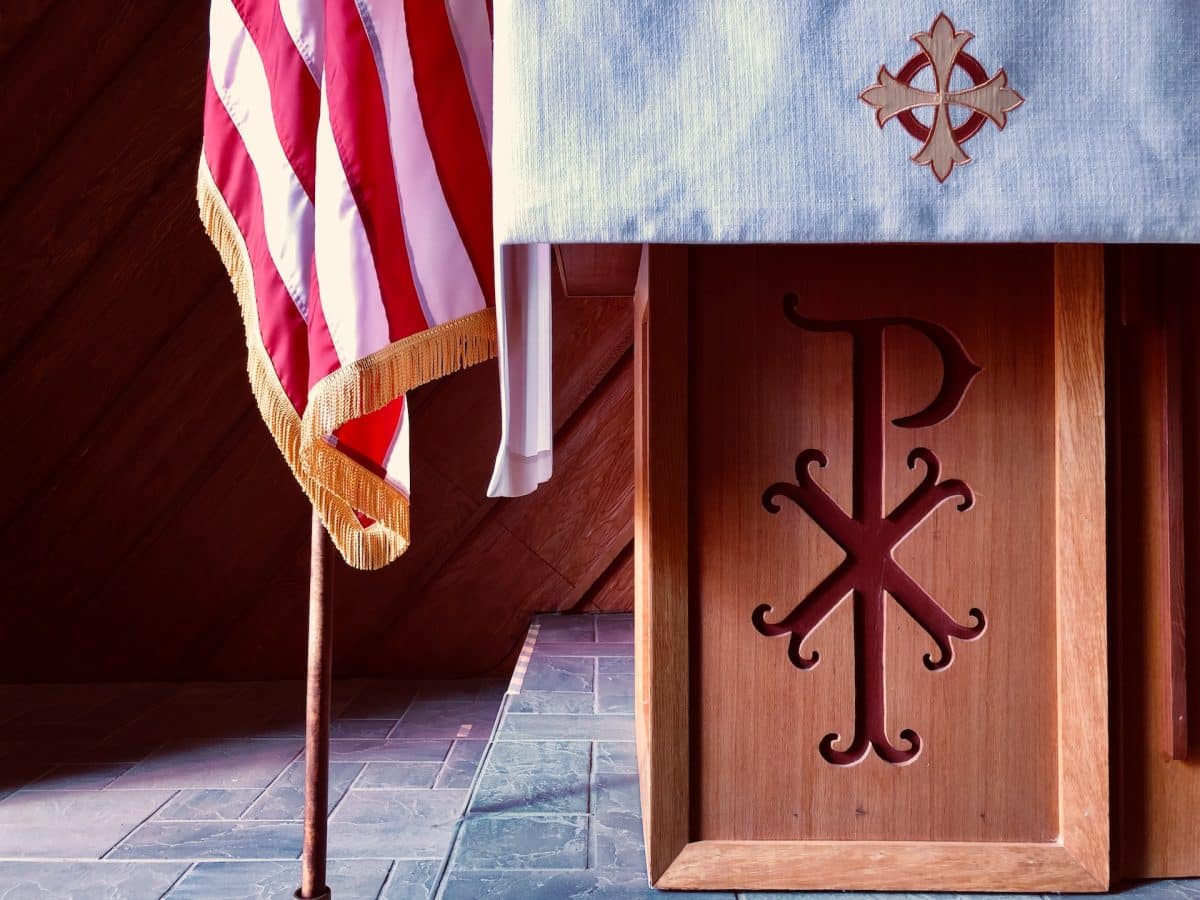
I’ve pastored a congregation for a decade, and for many years, they had an American flag and the so-called Christian flag in the front of our worship space without really thinking about why they were there or whether they should be. We’re a congregation full of ordinary Christians and ordinary Americans. We celebrate the fact that we can gather as one at Christ’s table, despite coming from a wide variety of political and even theological perspectives.

Rev. Rebecca Littlejohn
But after the insurrection of January 6, 2021, we felt it was time to revisit the practice. Seeing the flags and symbols we were used to seeing each Sunday morning weaponized to promote the narrow-minded ideology that divides neighbor from neighbor was a shock. And seeing more details emerge about that horrible day during the January 6 committee hearings has solidified our decision to revisit the flag’s place in the front of our worship space.
The reality is that the flags alongside the cross at the front of our sanctuary reinforce the dangerous ideology of Christian nationalism, a twisted belief that uses religion as a mere resource to drive right-wing political ideology. Christian nationalism has propelled some, like Rep. Marjorie Taylor Greene who embraces the label, to halls of power. And it was Christian nationalism that drove the violence at the U.S. Capitol Building on January 6. As a pastor, I’ve become increasingly convinced that we, as committed followers of Jesus, must name, define, and understand Christian nationalism, and work to dismantle it, in our congregations and our country. The potential danger – to our faith and our country – is simply too high to avoid this task.
For my congregation, it meant removing the flags from the altar.
It was a difficult conversation. Those flags carry with them personal meaning for each of us. For some, they are reminders of grandparents or scout leaders. For others, they evoke memories of the pastor who baptized them and their childhood. So, talking about removing flags from our sanctuary required us to dig into those powerful memories and think deeply about the values those loved ones taught us: values like compassion, respect, and generosity; values like loving your neighbor even if they did things differently than your family and serving God’s people without prejudice or fear.
Christian nationalism, however, is a rejection of those values. It is a cultural framework rather than a religious one. Much like nationalism is a perversion of patriotism, Christian nationalism is a perversion of Christianity. It is an extremist ideology that co-opts the symbols and rhetoric of our faith and forces them into the service of an agenda of bigoted hatred and violence.
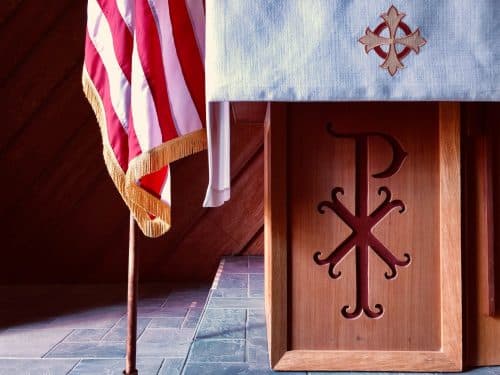
Josh Eckstein / Unsplash
When our congregation began honest conversations rooted in deep thinking that connected our hearts and our memories, we began to chart a way forward that honored our past and our values in truth, rather than simply appearance.
The American flag is a mighty symbol because it represents all of us and brings us together. E Pluribus Unum. Out of Many, one. But through our conversations, we recognized that our flag is the symbol of a nation, not a religion. It is important and revered by many, but it is not holy.
When we allow the warm fuzzy feelings that we may associate with the flag to blind us to the damage that Christian nationalism is doing to our country, we perpetuate the harm caused by the dangerous ideology. We become the people the Rev. Dr. Martin Luther King, Jr. warned about. We become the white moderate, the greatest stumbling block to justice.
To truly honor our faith and protect our democracy, we need to draw clear lines between our religious convictions, our patriotism, and the scourge of Christian nationalism. The difference between these last two is as stark as the difference between celebrating the Fourth of July and storming the Capitol because you refuse to accept the results of an election.
Thankfully, we don’t have to do the work of countering Christian nationalism alone. Organizations like Faithful America and the Baptist Joint Committee through its Christians Against Christian Nationalism campaign are educating and empowering ordinary Christians and ordinary Americans to seek justice and oppose Christian nationalism. But it is up to us to have the difficult conversations about the flag and the symbols we use and to act.
We cannot allow our reverence for the flag to blind us to the damage Christian Nationalism is doing to our country and our faith communities.
The Rev. Rebecca Littlejohn is senior pastor of Vista La Mesa Christian Church (Disciples of Christ) in East San Diego County, California.

